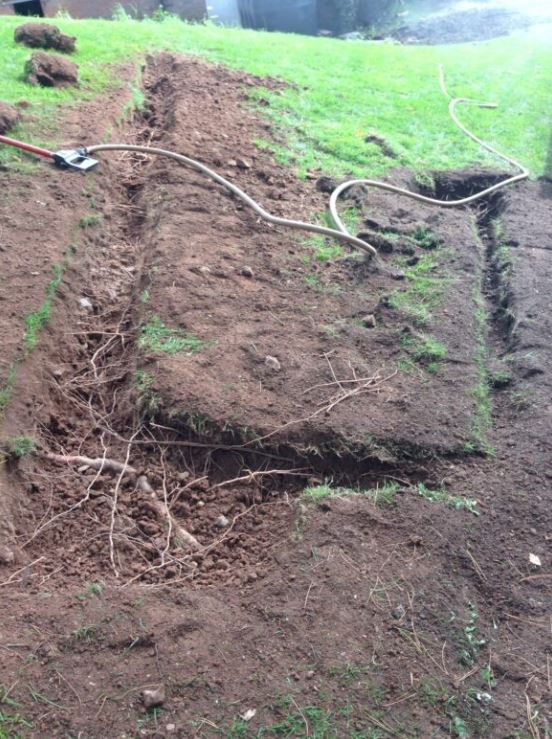Airspade and Tree Root Excavation Investigations
East Devon Tree Care are able to provide tree root investigations using a specially designed, high pressure air tool called an air spade.
By removing the soil around the roots a visual assessment becomes possible when it is necessary to inspect the below ground parts of the tree.
This is vital in assessing levels of root decay and identifying below ground problems such as girdling roots.

Soil Decompaction
The airspade tool uses a high speed jet of air to loosen and remove soil whilst leaving tree roots undamaged. We use different de-compacting methods to suit the site we are working on.
We are able to de-compact the surface layer of soil beneath the tree’s canopy and mix the loose soil with a composted organic mulch. By using the air spade we are able to work the mulch into and down through the soil profiles. This encourages strong, healthy roots that provide the tree with excellent opportunities for nutrient and water uptake, at the same increasing structural root development.
This treatment is particularly suited to treat compacted soils post development or on sites where future compaction can be reduced by re-directing vehicle and /or pedestrian traffic away from the tree.
This technique has been practiced at Kew Gardens since 2008 and has had excellent results.
In areas where it may be difficult to prevent or restrict future compaction, a technique called radial trenching may be more suitable. Radial trenching involves removing the compacted soil in trenches radiating out from the trunk of the tree to the edge of the drip line.
This treatment can be repeated for 2-3 consecutive years as long as the same trenches are not reworked. Studies have shown that within 2 growing seasons, root growth within the trenches can be 4 times higher than in the untreated soil.
What is soil compaction?
Healthy soil structure is made up of a loose matrix of solid particles with varying particle sizes from coarse sandy to fine clay fraction. Between the solid particles are pore spaces that also vary in size and shape. These pore spaces or voids are filled with moisture and air.
When soils are compacted these voids are lost, reducing the soils ability to retain air and moisture.
Trees roots are permeable and need to “breathe” to stay healthy. The loss of air spaces can literally suffocate tree roots. Compacted soils also hold significantly less moisture than healthy soils which can result in drought symptoms in trees.
Soil compaction around trees is often caused by people, animals, bicycles and cars, especially so in recreational and other heavily used areas.
Soil compaction causes crown defects; tree surgery addresses the symptoms but not the cause of these defects. By relieving soil compaction tree health improves. Improving tree health offers significant savings by reducing the need for costly tree surgery works.
Other uses for this equipment
The use of this equipment is not only limited to relieving soil compaction. East Devon Tree Care are also able use this technology for other tree health care benefits.
Aeration channels: We are able to create vertical aeration channels where soil levels have been raised, burying existing tree roots. Burying tree roots can have similar effects to soil compaction. We are able to excavate numerous vertical channels through the new soil profile, which are filled with a permeable backfill. This ensures roots have continued access to moisture and air while they adjust to the new soil depth.
Trenching within a root system: East Devon Tree Care can assist in development projects where trenching is necessary within root protection areas. Trenches can be excavated without damaging tree roots to allow installation of new services.

